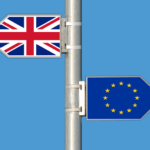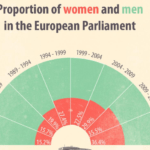The 2019 European elections will possibly be viewed by future historians as a landmark election for the EU due to the extraordinary political context in which they’re taking place and the challenges to democracy this involves. This is why innovative social sciences research is vital in helping us understand the shifting patterns of democratic participation in the 21st century.
2019 is a busy year for democratic elections – in Europe alone, aside from the European Parliament elections, various national elections (local, regional, parliamentary or presidential) will be taking place in at least 15 EU Member States. Further afield outside the EU, elections have already taken place or are still scheduled in Argentina, Australia, Canada, India, Indonesia, Israel, South Africa, Switzerland and Ukraine to name but a few. The United States will be, by the end of 2019, already gearing itself up for its 2020 showdown election between President Donald Trump and his Democratic opponent. So, measured in terms of electoral processes, democracy appears pretty robust and better than any alternative.
The challenges of the age
At the same time, especially since 2016 several elections and referenda have been characterised by relatively unprecedented misrepresentation and ‘fake news’ campaigns that undermine the notion of informed participation. More generally, democratic politics has witnessed a surge of protest and so-called ‘populist’ politics that have redefined the political space in many democratic countries and what it means to participate politically as a citizen. Some of the roots of these political trends can be traced back to the late 2000s’ financial and economic crisis which exacerbated inequality levels, drove many governments to pursue austerity policies, led to stagnant living standards and resulted in a strong distrust by many citizens of the supposed ‘political elites’.
The role of new technologies in reshaping democratic participation in the modern world is worth special attention. Social media has connected billions of people in ways that were unimaginable a few years ago, allowing news (including ‘fake’ stories), opinions and messages to spread worldwide in a matter of minutes. Technology is even changing the mechanics of democratic participation, such as the introduction in many countries over recent years of e-voting machines that have replaced the traditional pencil ballot, the increasing popularity of ‘direct’ forms of democracy that could be facilitated through digital advances and engagement with social media platforms concerning stronger checks on deceptive bots and the spread of fake news.
More Information
Access to the full news







Leave a Reply